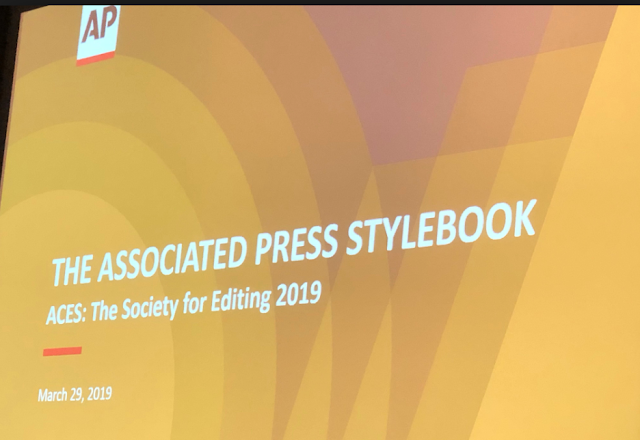
The dreaded hyphen is dead in the bible of journalism. The 2019 Associated Press Stylebook, has buried “Asian-American” in favor of “Asian American.”Huh, you shrug? Did you notice the difference? For non-journalists it might hardly be noticeable, but the elimination of the hyphen makes a world of difference.
English teachers and grammar experts might cringe at the change but the Associated Press guidelines, used by a majority of U.S. newspapers, is simply falling back on an underlying style rule that overrules what might be grammatically correct: Call people what they call themselves.
The proper grammar rule is to have the word “Asian” as a modifier for the word “American.” Under proper English-class rules, the modifier is attached to the subject with a hyphen.
But ever since the the word “Asian-American” was coined in 1969, the debate has raged among community activists who say the “Asian” part of how they identify themselves is diminished as a modifier and gives more importance to the “American” part of their identity.
Using the hyphen may be grammatically correct but it implies that the hyphenated person is less than a full-blooded American.
Proponents of not using the hyphen said it gave equal status to both parts of their identity.
For years, it went back and forth. Some used the hyphen, some didn’t . It became clear that usage of the unhyphenated American was gaining in popularity, particularly among progressive organizations.
However, in the world of journalism, editors who go strictly “by the book,” and eager to demonstrate the neutrality of “good” journalism, made sure that to put uppity young journalists of color — the group most likely to leave out the hyphen — in their place by making sure to add that damn hyphen. It was as if by insisting on the hyphen it was putting the journalists of color in their place.
Much in the same way the styleguide moved away from the word “Negro” to today’s description of African Americans or Blacks, the AP followed popular usage and dropped the hyphen.
LATEST STORIES
(Editor’s Note: The new AP Stylebook guideline follows what AsAmNews has done since the site launched in 2012.)
The other big change in the AP Stylebook is it’s now OK to call something or someone’s remarks racist.
It was always a source of irritation and frustration for a person of color that editors, usually White, would downplay someone’s racist words or actions. Their cautious editing, in itself — I believe — comes not from racist motives but a wish to stay away from words that are so loaded that they conjure up strong feelings, one way or another.
“Race is central to many recent headlines: Jussie Smollett’s case, immigration, the viral video of a teenager and a Native American elder,” writes Doris Truong for the Poynter Institute, a journalistic think tank that seeks to support and improve journalism.
“However we are in an era of dog-whistle politics — if you know what to listen for, you get the message. Some newsrooms have soft-pedaled describing actions as racist. Instead, they have hedged with language such as ‘racially motivated,'” continues Truong, who provided input to AP for the new guidelines as a representative of the Asian American Journalists Association.

The style guide entry on the race reads:
“The terms racism and racist can be used in broad references or in quotations to describe the hatred of a race, or assertion of the superiority of one race over others.”
It is no longer enough to take a “he said, she said” and a clinical approach to reporting the actions and words without describing them accurately.
It is journalism’s goal is to be accurate. In this age when racial inequality threatens our society, hate crimes are on the rise, and xenophobia is nurtured by the White House, it is difficult, if not impossible, to write about these issues without calling them for what they really are.
If the US is to have a real discussion on race, it needs to start in the nation’s newsrooms.
AsAmNews has Asian America in its heart. We’re an all-volunteer effort of dedicated staff and interns. Check out our Twitter feed and Facebook page for more content. Please consider interning, joining our staff or submitting a story









